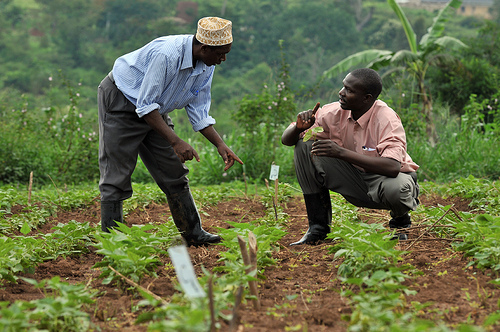Prof. Uche Uwaleke of the Nasarawa State University says a coordinated fiscal spending on agriculture, infrastructure development are part of the solutions to the nation’s inflation.
Uwaleke, a Professor of Banking and Finance, made this known in an interview with the News Agency of Nigeria (NAN) in Abuja on Monday.
The National Bureau of Statistics (NBS) had in its monthly Consumer Price Index (CPI) report which measures inflation, revealed an inflation rate of 18.72 per cent for January from 18.55 per cent recorded in December 2016.
The CPI, which measures the average change over time in prices of goods and services consumed by people for day-to-day living, is 0.17 per cent points higher from the points recorded in December.
The inflation rate accelerated for the 12th straight month to the highest since September 2005 as prices for food, housing and utilities continued to rise.
Uwaleke said that the headline inflation of 18.72 should not come as a surprise to any close watcher of inflationary trend in Nigeria.
According to him, there has been an increase of 9.6 per cent since January 2016 slightly above the Central Bank of Nigeria (CBN) threshold of 9 per cent.
He said the effects of the fuel subsidy and the forex policy of the CBN were responsible for the current inflation rate in the country.
“ The fact remains that headline inflation, which has been on a northward journey in the last one year, is chiefly as a result of the twin effects of fuel subsidy removal by the government and the forex policy which the CBN had to adopt in the first half of 2016 in response to plummeting oil revenue“.
He said that the impact of the subsidy removal on the cost of fuel, transport, electricity, and food prices had been unfavorable .
According to him, the exchange rate has resulted into much more higher cost for clothing, housing, books, raw materials and food items.
Uwaleke said these factors, which were largely non-monetary, had remained the key drivers of inflationary pressure in Nigeria in recent time.
“This is why the CBN appears helpless in taming inflation using the traditional tools at its disposal.
“These tools are more suited to tackling demand-pull inflation, a situation complicated by economic recession and an illiquid forex market,“ he said.
The professor reiterated the urgent need to adopt massive investment in the entire agricultural value chain and critical infrastructure development as measures to reducing the high inflation rate in Nigeria. (NAN)
KC/OFN

